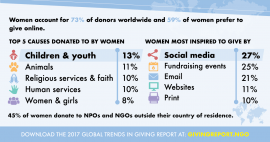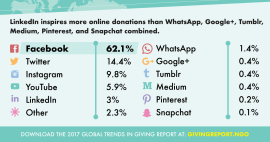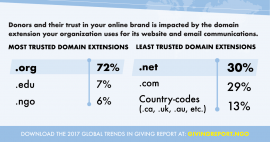
20 places left on the course “Communication Strategies for Youth Projects”!
The objective of this open and free course is to analyse and present good practices in the field of social communication during the implementation of youth projects in the Programa Erasmus Plus.
The course “Communication Strategies for Youth Projects” aims to analyse and present good practices in the field of social communication during the implementation of youth projects in the Programa Erasmus Plus.
Firstly, the training will give the youth workers the opportunity to learn from experts in the field of communication, through complementary materials and through the participation of their co-workers during the different sessions. Secondly, the course will allow the participants to share knowledge and to communicate with each other.
In order to achieve these aims, the following tasks will be undertaken:
- Present the theory of dissemination (communication) of results of youth projects and write a reflection.
- Reflect on the good practices in the dissemination (communication) of the results in the field of the youth projects implemented under the Programa Erasmus Plus.
- Communication strategies for Erasmus Plus projects.
- Target audiences for the communication strategies of the Erasmus Plus projects.
- Communication tools and resources for the Erasmus Plus projects.
Location: Aula de la Dirección General de Juventud situada en la calle Calàbria 147 (Barcelona)
Price: Open and free
Places: 20
Languages: Catalan or English
Registration form: Click here.
Deadline for registration: 9th October 2017


20 places left on the course “Communication Strategies for Youth Projects”!
The objective of this open and free course is to analyse and present good practices in the field of social communication during the implementation of youth projects in the Programa Erasmus Plus.
The course “Communication Strategies for Youth Projects” aims to analyse and present good practices in the field of social communication during the implementation of youth projects in the Programa Erasmus Plus.
Firstly, the training will give the youth workers the opportunity to learn from experts in the field of communication, through complementary materials and through the participation of their co-workers during the different sessions. Secondly, the course will allow the participants to share knowledge and to communicate with each other.
In order to achieve these aims, the following tasks will be undertaken:
- Present the theory of dissemination (communication) of results of youth projects and write a reflection.
- Reflect on the good practices in the dissemination (communication) of the results in the field of the youth projects implemented under the Programa Erasmus Plus.
- Communication strategies for Erasmus Plus projects.
- Target audiences for the communication strategies of the Erasmus Plus projects.
- Communication tools and resources for the Erasmus Plus projects.
Location: Aula de la Dirección General de Juventud situada en la calle Calàbria 147 (Barcelona)
Price: Open and free
Places: 20
Languages: Catalan or English
Registration form: Click here.
Deadline for registration: 9th October 2017


Honoring the Bright Life of Sr. Jean Pruitt: A Message from Rev. Keishi Miyamoto
It is with shock and tremendous sadness that I received the news that Sr. Jean Pruitt, the first GNRC Coordinator for Africa, passed away recently. When I met her at the GNRC Fifth Forum in Panama City this May, she was as full of joy, humor and vigor as ever. She has dedicated her entire life to the children for Africa. Her work for and with children has touched countless lives and inspired people like me all around the world.
I first met Sr. Jean, who has run the Dogodogo Center for street children in Tanzania for decades, at the GNRC First Forum in Tokyo in 2000. Thanks to her support, we were able to invite street children served by the Center to the Conference of Children for Coming Generation that we held in Japan in 2000. The presentation made by Mr. George Daniel, one of the street children from the Center, inspired all the participants, including me, and after that, I personally exchanged letters with him for a while.
Sr. Jean was the very first person to translate our vision for interfaith cooperation for children through the Global Network of Religions for Children into specific, grassroots action to change children's lives in Africa. She organized the East and Southern Africa Network of Religions for Children (ESANRC), the first regional GNRC network in Africa, soon after the GNRC's inauguration in the year 2000 and served as the first GNRC Coordinator for Africa until Dr. Mustafa Ali, who is now GNRC Secretary General, assumed the position in 2003. She also served as Chair of the Local Hosting Committee and contributed to the successful GNRC Fourth Forum held in Tanzania in 2012. Following the Fifth Forum this year, she has been active in following up on the commitments in the Panama Declaration. Sr. Jean was a bright light, and that light she gave will continue to shine in all of our work.
On behalf of Arigatou International, let me express my sincere condolences to her family, Maryknoll sisters, and to the GNRC Tanzania. We all mourn her and remember her for her tremendous contribution to the GNRC, and to the well-being of children in Africa and around the world.
Farewell, Sr. Jean. We will miss you. Rest in peace.
Keishi Miyamoto
President, Arigatou International

Honoring the Bright Life of Sr. Jean Pruitt: A Message from Rev. Keishi Miyamoto
It is with shock and tremendous sadness that I received the news that Sr. Jean Pruitt, the first GNRC Coordinator for Africa, passed away recently. When I met her at the GNRC Fifth Forum in Panama City this May, she was as full of joy, humor and vigor as ever. She has dedicated her entire life to the children for Africa. Her work for and with children has touched countless lives and inspired people like me all around the world.
I first met Sr. Jean, who has run the Dogodogo Center for street children in Tanzania for decades, at the GNRC First Forum in Tokyo in 2000. Thanks to her support, we were able to invite street children served by the Center to the Conference of Children for Coming Generation that we held in Japan in 2000. The presentation made by Mr. George Daniel, one of the street children from the Center, inspired all the participants, including me, and after that, I personally exchanged letters with him for a while.
Sr. Jean was the very first person to translate our vision for interfaith cooperation for children through the Global Network of Religions for Children into specific, grassroots action to change children's lives in Africa. She organized the East and Southern Africa Network of Religions for Children (ESANRC), the first regional GNRC network in Africa, soon after the GNRC's inauguration in the year 2000 and served as the first GNRC Coordinator for Africa until Dr. Mustafa Ali, who is now GNRC Secretary General, assumed the position in 2003. She also served as Chair of the Local Hosting Committee and contributed to the successful GNRC Fourth Forum held in Tanzania in 2012. Following the Fifth Forum this year, she has been active in following up on the commitments in the Panama Declaration. Sr. Jean was a bright light, and that light she gave will continue to shine in all of our work.
On behalf of Arigatou International, let me express my sincere condolences to her family, Maryknoll sisters, and to the GNRC Tanzania. We all mourn her and remember her for her tremendous contribution to the GNRC, and to the well-being of children in Africa and around the world.
Farewell, Sr. Jean. We will miss you. Rest in peace.
Keishi Miyamoto
President, Arigatou International

Do you know the global trends in donations for 2017?
The 2017 Report on Global Trends in Donations has collected responses from more than 4,000 donors and provides data on the status of donations on the internet at an international level.
Most donors belong to the Baby Boomer generation (1946-1964) and the Unites States leads in donations. Children and young people are the themes that most incite donors to give money. 61% of donors are most inspired around Christmas or holidays, and 45% give to NGOs outside their country of residence. The main countries where the donations go are India, Syria, Kenya, Haiti and Israel.
One noteworthy fact is that 61% of donors prefer to donate online, and 82% do so on a monthly basis. Facebook stands as the social network that most inspires donors, as it attracts 62% of them. Social media and fundraising events also inspire more donors around the world. It is also true that 66% of donors have already worked as volunteers for a non-profit organization.
With respect to technology, the report indicates that having a dot org (.org) domain reinforces trust in organization’s online brand so that donors decide to contribute their grain of sand. However, donor confidence is high, with 9 out of 10 thinking that NGOs are ethical and dignified.
With regard to demographic data, there are almost three times more women donors than men: 2,954 women to 1,074 men. The report also highlights trends in donations by geographic area: Africa, Asia, Australia and Oceania, North America and South America. The partners who collaborated in the preparation of the report are Canadahelps.org, Everydayhero, and Network for Good. If you want to download the report, you can do so through the following link. Just enter your information and you can download a free document in PDF format.











